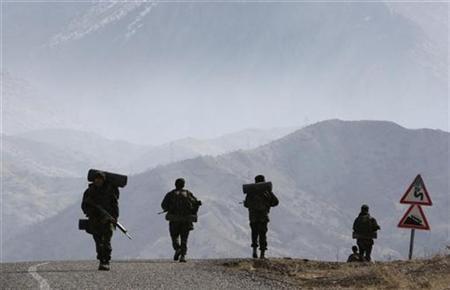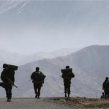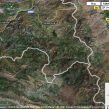Destruction of Turkish Outpost by PKK Leads to Counterterrorism Reforms
Publication: Terrorism Focus Volume: 5 Issue: 37
By:

Click Here for a Interactive Map
The PKK’s October 3 attack on the Aktutun military outpost sparked a controversy over whether Turkish counterterrorism strategy is on the right track. In its three decades old battle against the PKK, the Aktutun attack marked the first time the Turkish Armed Forces (Turk Silahli Kuvvetleri – TSK) was strongly criticized by mainstream media outlets. Two major factors played a role in the surprisingly harsh criticism. First, despite the fact that the PKK has organized four attacks on Aktutun outposts in the last year, the military failed to successfully defend its outpost, with 17 soldiers losing their lives. Second, the TSK failed to manage the sequence of events after the attack.
Soon after the fatal attack, the Turkish press reported that Turkish military intelligence was aware of PKK intentions to attack Aktutun a month before it happened. Liberal daily Taraf published an intelligence report showing that the intelligence service detected and reported the details of the planning process. Along with the military intelligence reports, Taraf also published the three images from American satellite intelligence, which showed the preparation process of the attack (Taraf, October 14).
The second source of criticism was the TSK’s failure to inform the public about what actually happened at Aktutun. On October 4, the PKK’s attack was posted on the TSK webpage, which announced 15 soldiers were killed and two were missing while 23 PKK fighters were killed in the clash (tsk.mil.tr., October 4). It turned out the PKK’s reported losses were inaccurate – only nine PKK bodies were found on the scene (cnnturk, October 5).
On October 5, the Deputy Chief of the Turkish General Staff informed the media that the TSK had planned a year ago to move five military outposts to geographically secure places to avoid such an attack. Because of financial shortages the posts haven’t been moved yet (Hurriyet, October 5). This information sparked a controversy over whether the government provides sufficient financial support to the military (Hurriyet, October 6). Even soccer fan clubs became involved in criticizing the government by offering financial help to build a better military outpost (antu.com, October 8). The Finance Ministry responded by releasing a statement denying allegations the military was not financially supported. On the contrary, the Finance Ministry stated that “the Military in 2007 did not use 250 millions Turkish Lira from its budget and returned it back to the treasury” (Aksam Gazetesi, October 9).
In addition, an anonymous source told mainstream daily Hurriyet that since Turkey’s land operation in northern Iraq last February, America had stopped sharing its satellite intelligence (Hurriyet, October 6) This disinformation attempt by Turkish sources was immediately rejected by the U.S. embassy in Ankara. An embassy spokesperson told Hurriyet: “There is no such termination on the intelligence sharing program with Turkey. It continues as it should be” (Hurriyet, October 7). A further explanation claimed the terrorists who attacked the Aktutun outposts did not come from PKK bases in northern Iraq, but from Turkish territory. Because American satellite intelligence devices are not programmed to monitor PKK movements in Turkish territory, the gathering of 300 PKK fighters could not be detected (Hurriyet, October 13).
While the TSK has been trying to cover its failure through the release of selected information to pro-state media outlets, Taraf reported that the commander of the Air Force, General Aydogan Babaoglu, was playing golf in Antalya while the soldiers in Aktutun were fighting in their posts. Even worse was the fact he was one of the last people to hear what happened in Aktutun, some 24 hours after the clash ended. As the press noted, some of the dead soldiers had already been buried before Babaoglu was informed of the attack (Taraf, October 7). The TSK released a press statement to deny the allegations raised by Taraf, though the statement confirmed that General Babaoglu was in fact not informed of the attack until his golf game ended on Saturday, October 5 (tsk.mil.tr, October 8).
The revelations prompted an angry response from the Chief of the Turkish General Staff, General Ilker Basbug, who held a press conference to denounce the publication of classified information; "Those who present the actions of the separatist terrorist organization [a euphemism for the PKK] as successful acts are responsible for the blood that has been shed and will be shed… This is my last word: I invite everyone to be careful and to stand in the right place” (Today’s Zaman, October 14). While almost all mainstream Turkish media was critical of at least the format and the tone of General Basbug and his apparent threats against the media, he received unexpected support for his statements from Prime Minister Erdogan, who joined Basbug in criticizing Turkey’s news organizations; “There is no room in this fight [against terror] for weakness or hesitation. Nobody should dare to show our government or security forces as weak” (Taraf, October 17; Turkish Daily News, October 17). Erdogan’s comments were met with a sarcastic response in some parts of the Turkish media, to which the Prime Minister replied; “Some people in the media are trying to provoke us. Where this is coming from is the question that we have the right to ask” (Turkish Daily News, October 18).
The TSK insisted that the aerial photos published by Taraf were in fact from Kandil (125 kilometers away from Aktutun) and Kerintepe (20 kilometers away). A publication ban was imposed on further reproduction of the images on the grounds that it might jeopardize the investigation into who leaked the photos to the press (Bianet, October 17; Turkish Daily News, October 18).
Taraf’s reporting opened the door for the mainstream media to question what went wrong at Aktutun. Even well known Kemalist intellectuals, who almost always support the TSK, began questioning whether Turkish counterterrorism policies work (Radikal, October 7; Sabah, October 8). Kemalist Republican Peoples Party (Cumhuriyet Halk Partisi -CHP) leader Deniz Baykal blamed the military’s failure on the ruling Justice and Development Party (Adalet ve Kalkınma Partisi – AKP); “There were almost no terrorist actions or attacks [before the AKP took power in 2002]. Terrorism has significantly risen since 2002. The government has either been unable to understand the term ‘terrorism’ or it has chosen not to understand it. It has not grasped the significance of the fight against terrorism” (Aksam, October 8; Today’s Zaman, October 8).
Such questioning led the TSK and the government to take a series of new steps. First, the TSK, for the first time in its counterterrorism history, openly invited counterterrorism experts to give their opinion (Vatan, October 8). In a counterterrorism meeting between military generals and the government, the generals requested extended powers and the creation of an institution to better coordinate the fight against terrorism (Radikal, October 10) Another significant development is the decision of the Turkish National Police (TNP) to send seven thousand men of its Special Forces units to the ethnic-Kurdish region of southeastern Turkey. During the 1990s the Police Special Forces were a leading element in the fight against the PKK, but during the February 28, 1997 political crisis between the Turkish military and the civilian government, the generals put pressure on the government to withdraw police forces from the region (Yeni Safak, October 10).
On October 15 the government released its plan to reorganize government institutions in Ankara to better coordinate counter-terrorism efforts (Today’s Zaman, October 15). Furthermore, in the National Security Council (Milli Guvenlik Kurulu -MGK) meeting the government’s plan to reorganize the bureaucracy in Ankara to better coordinate state institutions in the fight against the terrorism was approved (Vatan, October 21).
The new plan calls for the military to relinquish control for domestic security to the civilian Interior Ministry and its police and gendarmerie units (the latter are now under the effective, if not official, control of the TSK). The government is planning to coordinate all the state institutions to concentrate their efforts on counterterrorism problems by addressing the economic, social and educational aspects of terrorism. It was also announced that the Chief of Staff will be briefing government cabinet members about counterterrorism efforts. This marks the first time in three decades that the Chief of General Staff will brief civilian cabinet members. Prime Minister Erdogan revealed the “briefing will be about the details of the counterterrorism efforts to see what the government can do to coordinate counter-terrorism efforts for today and the future” (Anadolu Ajansi, October 24; Hurriyet, October 28). One consequence of the transfer of responsibility for counterterrorism efforts is the civilian government will now be accountable when there is a failure such as Aktutun.
After two stormy weeks for the Turkish military, politicians and media, what seemed evident was that most of Taraf’s initial reporting was accurate. Indeed, despite the fact that the TSK received intelligence from various sources, it failed to prevent the PKK from attacking. Making matters worse, the TSK also failed to handle the aftermath of the Aktutun attack, harming its image in the process. By supporting General Basbug, Prime Minister Erdogan has lost his credibility in the eyes of Turkish Kurds and faced protests in his last visit to the predominantly Kurdish city of Diyarbakir, where Erdogan’s AKP was expecting to be successful in next March’s regional elections (see Eurasia Daily Monitor, October 24).
On the positive side, however, there is now a clear effort to reorganize the state bureaucracy to better address the terrorism problem and, most importantly, the civilian government will finally be actively involved. Turkish diplomacy is at work and new channels of communications are being established with the Kurdistan Regional Government in northern Iraq to uproot PKK bases from in its territory. Following the disaster at Aktutun, it appears the civilian government and the military are finally on the same page in Turkey’s war on terrorism.





